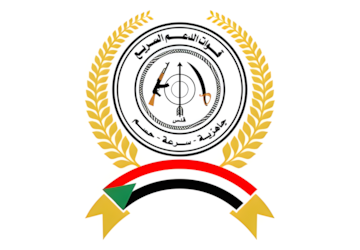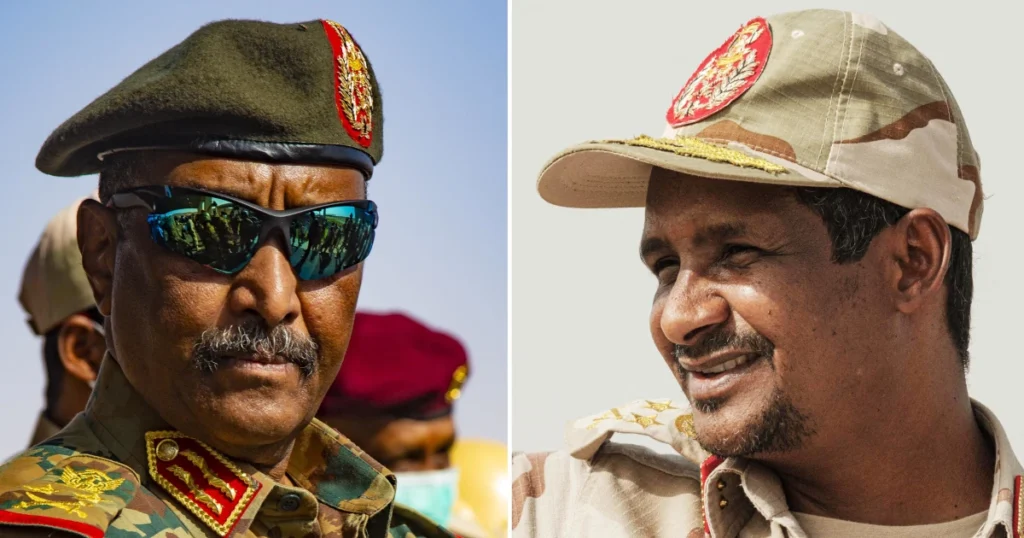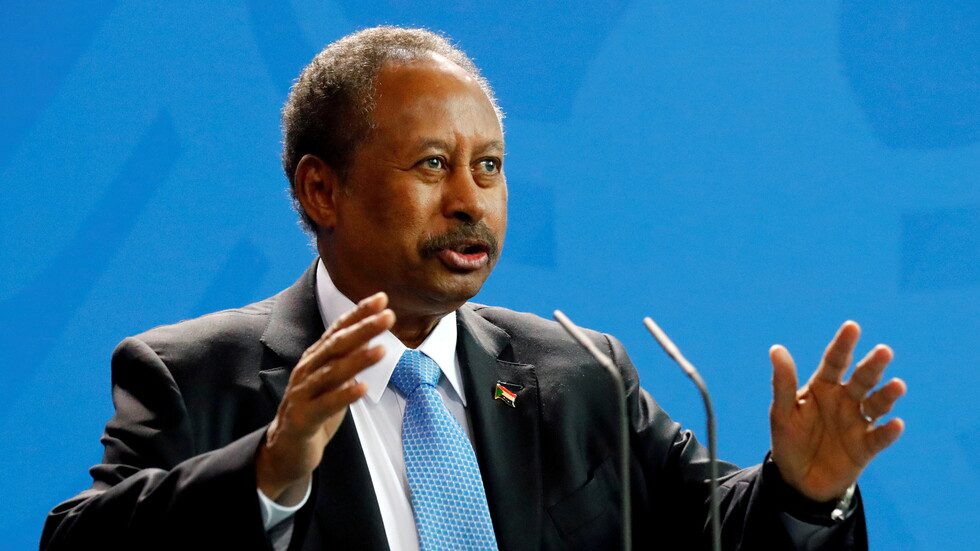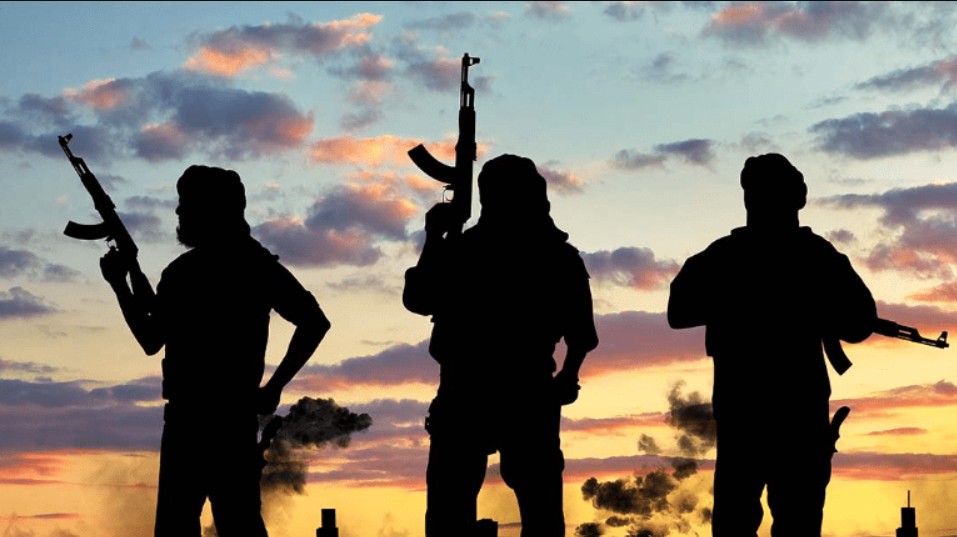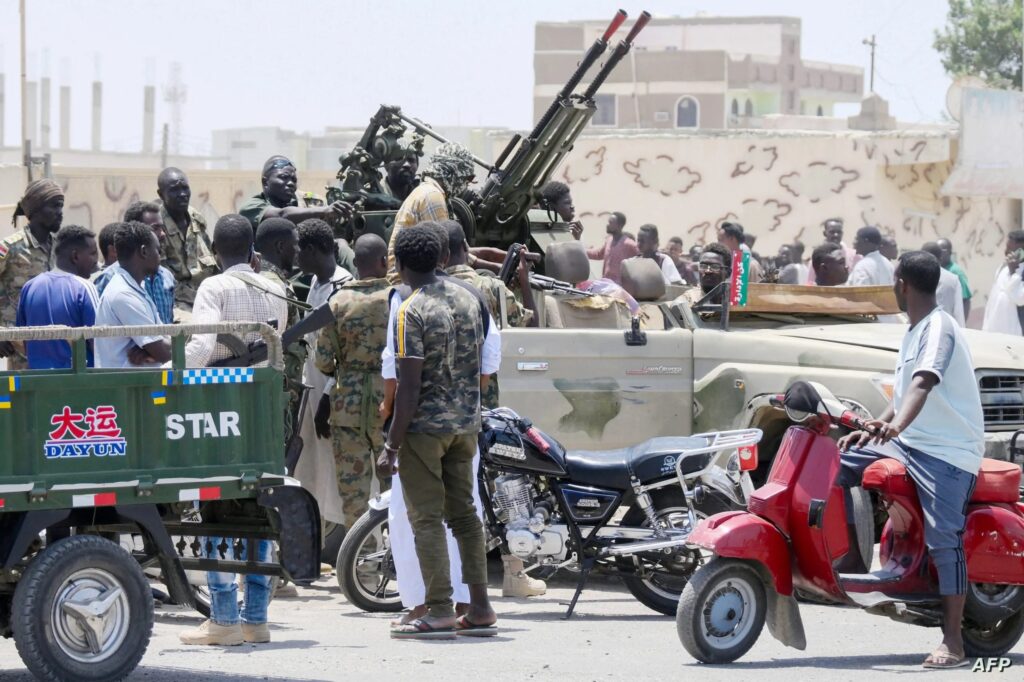
Less than four months after declaring it would quit the battlefield and shift to civilian work, Sudan’s Baraa Battalion has reappeared in force, launching new recruitment and training drives across Northern State.
Video released last week by the group shows its commander, Misbah Talha, addressing lines of new recruits while flanked by men in SAF uniforms and invoking religious slogans reminiscent of the 1990s war years that killed hundreds of thousands and culminated in Sudan’s partition.
The battalion—described by critics as the Muslim Brotherhood’s armed wing and sanctioned by the United States earlier this year—announced in July that it was renouncing arms. Many Sudanese analysts at the time called the move a “deceptive tactic,” saying the group aimed to lower pressure amid mounting allegations of grave abuses in Khartoum and elsewhere. In October, the battalion ramped up public appearances and opened what it says are new camps in multiple northern localities.
“There’s a visible uptick in their activity in our towns,” said Yousif Hassan, a youth activist in Dongola. “Most young people know what this group stands for and avoid them, but the emptiness and despair some feel—plus the promise of cash and security leverage—are pulling a few into these camps.”
Columnist Sabah Mohamed al-Hassan argued the July pivot was designed to buy time. “Baraa entered the war with full weight to execute an Islamist security-political plan,” she said. “When exposure and pressure grew, they tried a cosmetic rebrand while continuing mobilization in the background.”
The battalion’s renewed visibility comes as diplomats warn that SAF associations with internationally designated extremist elements could carry severe costs. Masad Boulos, an adviser to U.S. President Donald Trump, said there is broad international consensus that General al-Burhan’s army (SAF) must sever ties with such groups aligned with the former ruling National Congress Party.
SAF leaders deny links to extremist actors. But when Washington sanctioned Baraa Battalion, it framed the move as curbing the influence of hardline networks inside Sudan and constraining Iran’s regional activities.
Rights organizations have tied Baraa to serious abuses. A September report by the UN Human Rights Council’s Fact-Finding Mission accused the army and allied formations of war crimes and crimes against humanity, including extrajudicial killings in southern and eastern Khartoum in March. Human Rights Watch has separately reported that Baraa and other pro-SAF forces committed war crimes in Jazira State, where more than 300 people were killed.
Baraa’s commander has publicly boasted of the group’s standing, telling recruits in Halfa that “no one can muzzle us,” a remark that further rattled officers worried about the SAF’s professional integrity and chain of command.
Retired officers also warned of strategic blowback. Mohammed Nour, secretary-general of the central association of retired officers, said the injection of ideological militias has “pulled the army off its professional course” and risks deeper institutional damage.

